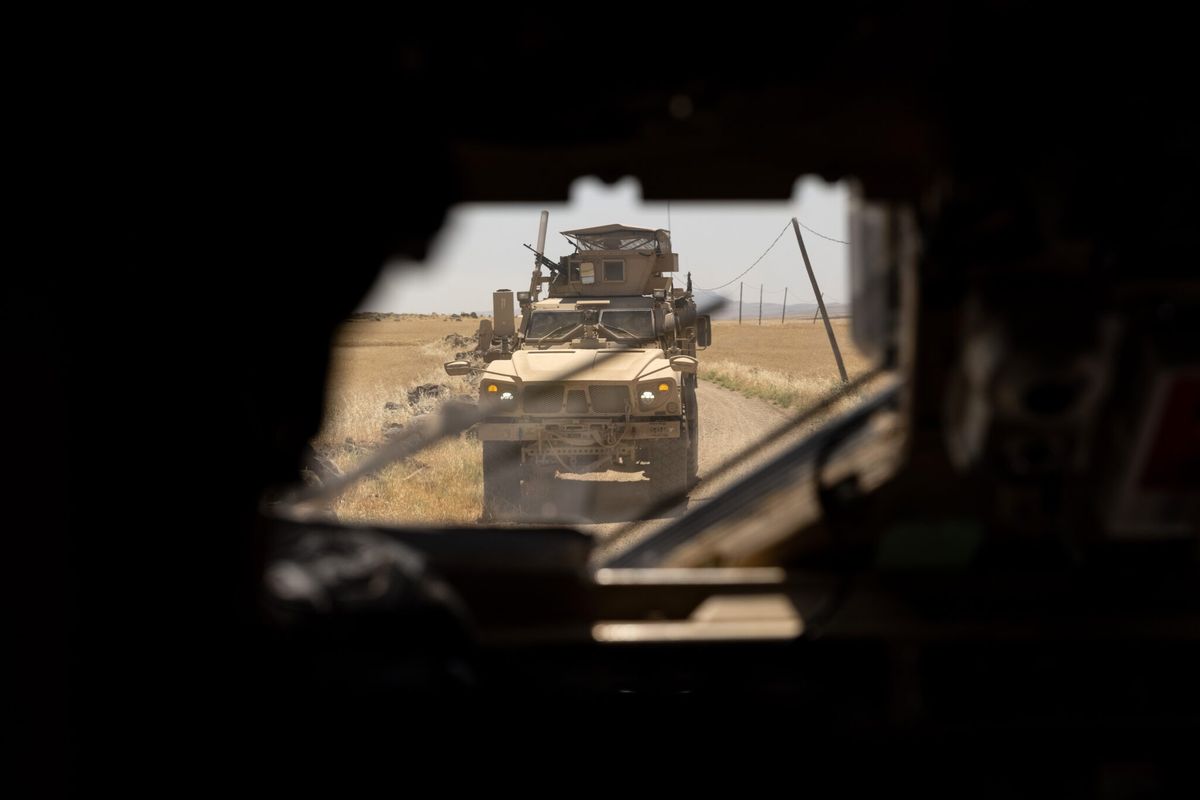More than 200 additional U.S. troops will be deployed to Iraq to help support and intensify the fight against ISIS, a move retired four-star General Jack Keane told The Cipher Brief is an “incremental step in the right direction.”
Defense Secretary Ash Carter announced the new troop deployment on Monday, along with the news that the U.S. has authorized the use of Apache helicopters to support Iraqi ground forces in the key campaign to retake the city of Mosul.
“We are going to place additional advisers with the Iraqi security forces, now down to brigade and battalion headquarters, an important move,” Carter said during his visit to Baghdad. “Second, we’re going to make available attack helicopters in support of the ISF’s ongoing effort to envelop and then retake Mosul, an important capability.”
These shifts could potentially place American troops closer to the frontlines.
The 217 additional troops will boost the authorized troop level in Iraq from 3,870 to 4,087, and are expected to include Army special forces to advise and assist the Iraqis, trainers, security forces, and support crews for helicopter and artillery operations.
Cipher Brief network expert Gen. Keane said that adding these troops is “certainly not any change in strategy,” but it marks a crucial — although small — step in the right direction to help the fight against ISIS and achieve the goal of reclaiming Mosul.
"I believe this is the fifth or sixth incremental change to our troop deployment — and it would have been far better to decide from the beginning what is actually needed, to put that force on the ground, when the campaign began. All that said, these are an additional 200 troops that will assist with the deployment of our Apache helicopters, which are vital to the retaking of Mosul," Gen. Keane, who served as the Vice Chief of Staff of the U.S. Army, said.
American Apache attack helicopters are currently in Iraq, but they have previously been used only in a force-protection capacity. In December, Carter had proposed stepping up the U.S. contributions in the fight against ISIS by sending more American troops and using Apache helicopters to help the Iraqi army retake territory, although the Iraqi government did not take up the offers at that time.
With Monday’s announcement, American-piloted Apaches are now available to fight with Iraqi forces to recapture Mosul and military advisers will now be able to embed at the battalion level of the Iraqi army, putting U.S. troops closer to the fight. And as Carter pointed out on Monday, these moves were made with agreement of Iraqi Prime Minister Haider al-Abadi.
The move to put advisers down to the battalion level for the first time in this campaign is a “significant positive step which will increase the Iraqi tactical performance and also make the use of air power in support of ground troops much more effective,” Keane noted.
Carter also announced measures to send in some additional high-mobility artillery rocket systems (HIMARS) to support the Iraqi ground offensive and to provide $415 million in financial assistance to the cash-strapped Peshmerga, the Kurdish military forces, who have battled against ISIS.
“To do all this, we’re going to adjust what you’re doing,” Carter told U.S. troops in Baghdad. “That is, how we use our existing forces that are here — and we’re going to bring in additional ones.”
Gen. Keane noted that General Joseph Dunford, the Chairman of the Joint Chiefs of Staff, “has been considerably more aggressive than his predecessor” Gen. Martin Dempsey in getting more resources out of the White House.
“And despite the significant constraints that the Obama White House has placed on the military and the Pentagon, General Dunford has been successful pushing out to the margin of those constraints to get additional resources,” he said.
Overall, Keane said, the move on Monday to add troops will help push the fight against ISIS forward.
“In sum, this is an incremental step in the right direction. It will be helpful,” Keane said.
Mackenzie Weinger is a National Security Reporter at The Cipher Brief.













